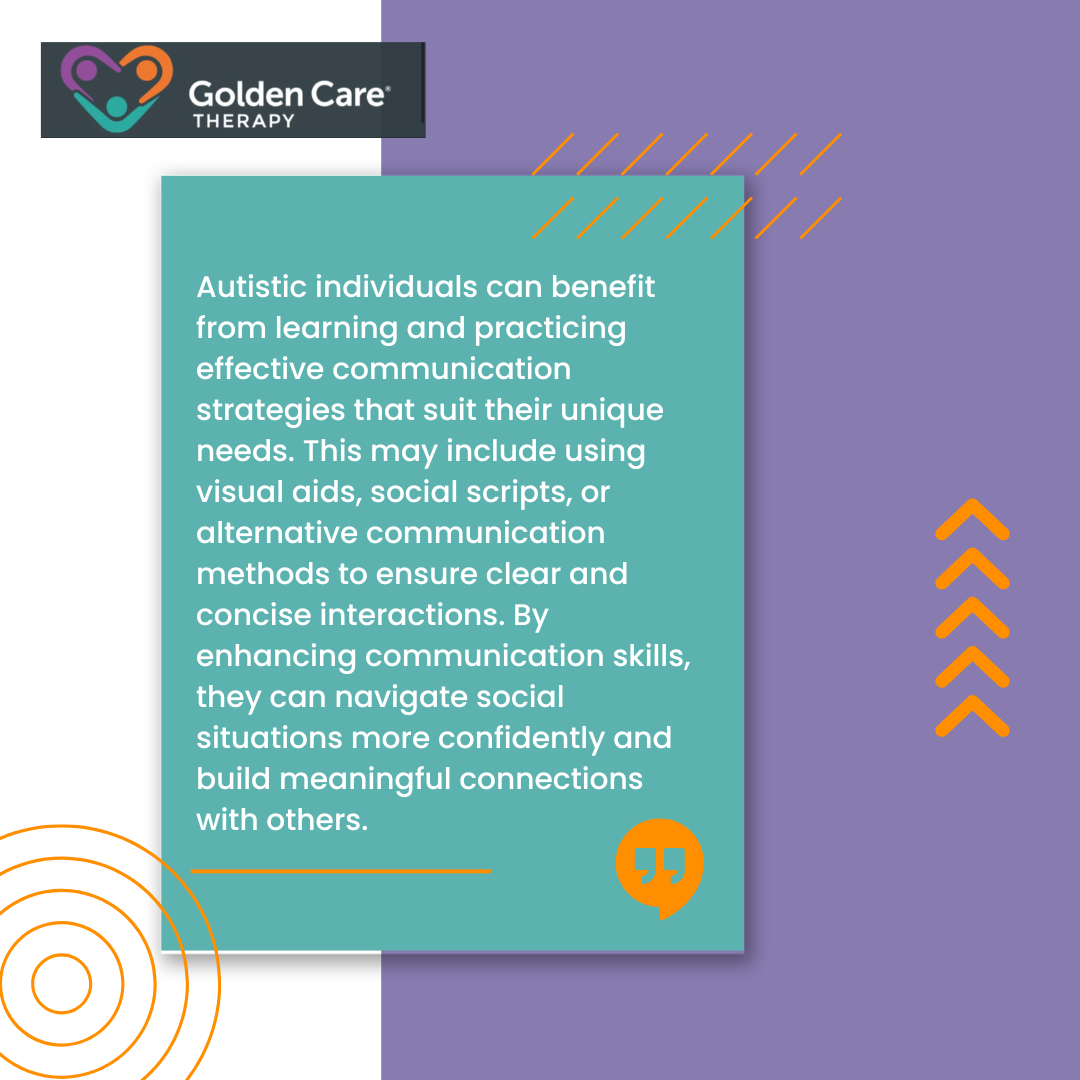
Table of Contents
Self-acceptance is a vital part of personal well-being and happiness, but for many people with autism, it can be a challenging journey. The process of embracing oneself fully, despite unique traits or differences, often involves navigating a complex landscape of societal expectations and personal self-image.
Understanding how autism intersects with self-acceptance helps in recognizing the hurdles faced and the strengths possessed. This connection is essential for fostering a more inclusive and supportive environment where individuals can thrive and feel valued for who they truly are.
Embracing Uniqueness
Embracing one’s uniqueness is a fundamental aspect of self-acceptance for autistic individuals. It involves accepting oneself fully, including both positive and negative characteristics, and appreciating the qualities that make each individual distinct.
Acknowledging and embracing their uniqueness allows autistic individuals to cultivate a sense of self-worth and confidence in their identity.
Defining beliefs and interests also plays a crucial role in the journey toward self-acceptance for individuals on the autism spectrum. By identifying their values, beliefs, and interests, individuals can gain a deeper understanding of themselves and their place in the world.
This self-awareness can lead to a stronger sense of identity and purpose, ultimately contributing to greater self-acceptance and fulfillment.
In the context of autism, self-acceptance involves recognizing and valuing all aspects of oneself, even when one diverges from societal norms or expectations. Embracing one’s uniqueness and defining personal beliefs and interests are essential steps in fostering a positive self-image and empowering individuals with autism to embrace who they are authentically.
Challenges in Self-Acceptance
Navigating self-acceptance can be particularly challenging for individuals on the Autism Spectrum due to unique hurdles. Let’s explore two key challenges that autistic individuals tend to face in the journey towards self-acceptance.
Differing Experiences
For autistic individuals, self-acceptance can be complicated by the varying nature of their experiences. These experiences may diverge from conventional societal norms, presenting challenges in being understood and accepted by others.
The differences in communication styles, sensory sensitivities, and social interactions can create a sense of isolation or feeling disconnected from the world.
Embracing one’s authentic self in the face of these disparities can require a heightened level of self-awareness and self-advocacy.
Overcoming Self-Doubt
Self-doubt can be a significant barrier to self-acceptance for individuals on the Autism Spectrum. The internal struggle with self-worth, capabilities, and identity can lead to negative self-talk and inhibit personal growth.
Overcoming self-doubt involves challenging negative beliefs and reframing them with self-compassion and understanding. Building self-trust through positive affirmations, supportive relationships, and seeking professional guidance can help individuals combat self-doubt and cultivate a more positive self-view.
Building Self-Trust
Building self-trust plays a fundamental role in the journey of autism self-acceptance when it comes to fostering confidence and well-being. This process involves two key aspects which are as follows:
Understanding Self
To cultivate self-trust, individuals with autism need to engage in self-exploration and introspection. Understanding oneself encompasses recognizing personal likes, dislikes, preferences, viewpoints, and beliefs. By gaining insight into one’s own identity and characteristics, individuals can develop a sense of self-awareness and self-assurance.
Self-understanding also involves acknowledging strengths, limitations, and areas for growth. Embracing one’s uniqueness and recognizing personal value are essential steps toward building a positive self-image and promoting self-trust.
Learning from Experiences
Learning from past experiences is integral to developing self-trust and self-esteem. Individuals with autism can enhance their self-confidence by reflecting on past interactions, situations, and challenges.
Identifying what has worked well and what has been challenging allows individuals to adapt their behaviors and decision-making processes to align with their needs and goals.
Practicing small everyday interactions and gradually expanding to more complex scenarios can help individuals with autism build resilience and self-assurance. Each experience offers a valuable opportunity for learning and growth, contributing to the development of a strong sense of self-trust.
Setting Boundaries
Navigating social interactions and relationships can be particularly challenging for individuals with autism. This is why it’s essential to establish clear boundaries and promote healthy communication.
For individuals on the autism spectrum, understanding social cues and boundaries can be complex. It’s important to educate oneself and others about individual preferences and comfort levels when interacting. By setting clear boundaries, autistic individuals can protect their personal space, emotions, and well-being during social interactions.
Establishing boundaries can involve simple actions such as communicating one’s need for personal space or expressing discomfort in certain situations. By setting boundaries, individuals with autism empower themselves to navigate social interactions with confidence and self-assurance.
Effective communication also plays a vital role in fostering positive relationships and understanding among individuals with autism. Healthy communication entails not only expressing thoughts and feelings clearly but also actively listening and respecting the perspectives of others.

Furthermore, promoting healthy communication involves mutual respect, empathy, and understanding. By encouraging open dialogue and active listening, individuals with autism can create a supportive and inclusive environment that nurtures self-acceptance and positive relationships.
Strategies for Self-Acceptance
Navigating the path towards self-acceptance is a significant journey for individuals with autism. By implementing specific strategies and fostering a supportive environment, individuals can enhance their self-awareness and confidence.
Here are two key strategies that can effectively promote self-acceptance among autistic individuals:
Valuing Positive Attributes
One crucial aspect of fostering self-acceptance is recognizing and valuing the positive attributes and unique qualities that make individuals with autism special. Embracing oneself and appreciating these distinct characteristics are fundamental steps toward building a positive self-image.
Acknowledging their strengths, talents, and achievements allows them to cultivate a sense of self-worth and pride in who they are.
In the pursuit of self-acceptance, it is essential for individuals to practice self-compassion and forgiveness. Acknowledging past mistakes or setbacks and learning from them without self-judgment is a powerful way to promote self-acceptance.

Engaging in Social Interactions
Another effective strategy for enhancing self-acceptance is engaging in meaningful social interactions. Connecting with others who understand and appreciate the unique perspectives of individuals with autism can foster a sense of belonging and acceptance.
In-person socializing provides opportunities to build supportive relationships, share experiences, and receive validation from peers.
Surrounding oneself with understanding and encouraging individuals can create a nurturing environment that promotes self-acceptance. By engaging in positive social interactions and seeking out supportive communities, individuals with autism can feel accepted, valued, and understood.
Building strong social connections can aid in developing self-confidence and a sense of belonging.
Self-acceptance isn’t just about feeling good; it’s about recognizing that every person, regardless of their neurological differences, has value and potential. By fostering a mindset of acceptance, we can build a more inclusive world where everyone feels empowered to shine.
So let’s celebrate our differences and support each other in this journey towards self-love and understanding. If you’re looking for ABA programs in Georgia, New Jersey, Indiana, and New York, Golden Care Therapy offers tailored support to meet your needs. Contact us today to learn more about how we can assist you on your path.
Sources:
- Autism and Feeling Empty: What’s the Connection? - September 19, 2024
- Addressing Autism and Anger Issues - September 19, 2024
- Embracing Autism and Self-Acceptance in Daily Life - September 19, 2024
